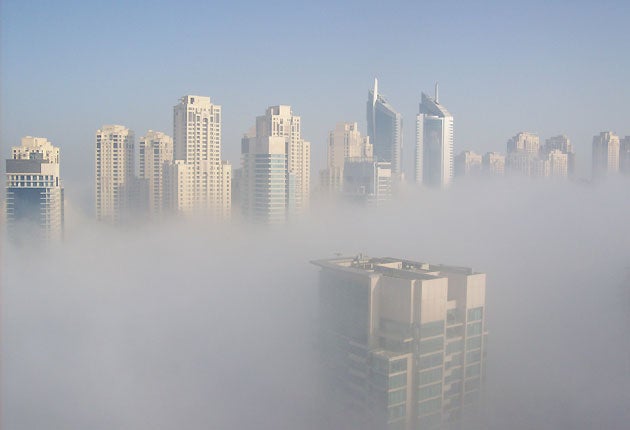Sean O'Grady: Is Dubai the 'New Lehmans'?

Is Dubai the “New Lehmans”? Not quite, at least on the broad numbers. Lehmans went down with debts of $500bn; the disarray in Dubai looks like losing everyone involved about $80bn, certainly not much when set against the $2,700bn ($2.7trillion) of banking losses accumulated over this crisis.
But the blow to confidence, at a time when the world is trying to crawl out of the worst downturn in three quarters of a century, is far more grievous. It has already shaken the stock markets; the fear now gripping them has the potential to induce more panic and set back recovery by months, if not years. That is prospect too horrible to contemplate.
Fortunately, we have had sufficient experience of financial crises to know precisely what needs to be done now; swift, bold international action. As with Iceland, the Ukraine, Hungary and many other states, Dubai can and should be saved. The damage is containable. Aid must come from Dubai’s partners in the United Arab Emirates, especially oil-rich Abu Dhabi; from the Gulf Cooperation Council, dominated by Saudi Arabia; and from the IMF. Abu Dhabi’s sovereign wealth fund alone is worth about $700bn, the biggest in the world. So the funds are there to organise some sort of rescue; the political will must be found.
If the rumours are to be believed, the British banking groups, as you might expect on their past record, are badly exposed to this latest mess, with the obvious potential for yet another substantial bill for the hard-pressed UK taxpayer. So we are entitled to know how much the banks stand to lose in Dubai. Early on in the credit crisis the G20 demanded transparency from the banks about the scale of their losses. Openness might help calm the incipient panic building around the banks once again. In any case, this is a harsh reminder that the credit crunch is far from over; and the global financial system is only functioning at all because it is on life-support provided by governments and central banks.
Short of oil, Dubai attempted to create an artificial economy from reclaimed land and borrowed capital; but it was unnatural, both economically and environmentally sense. Grand as Palm Island and those imperious tower blocks appear, they are badly devalued collateral, a financial mirage. As our banks are discovering, Dubai is simply sub-prime in the desert.
Join our commenting forum
Join thought-provoking conversations, follow other Independent readers and see their replies
0Comments